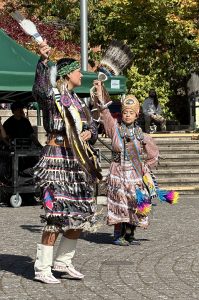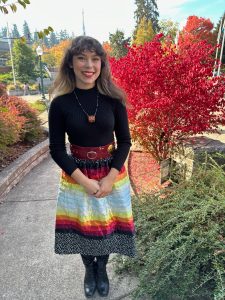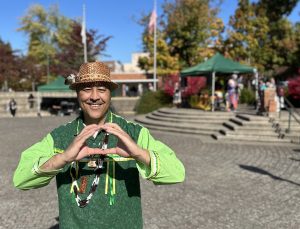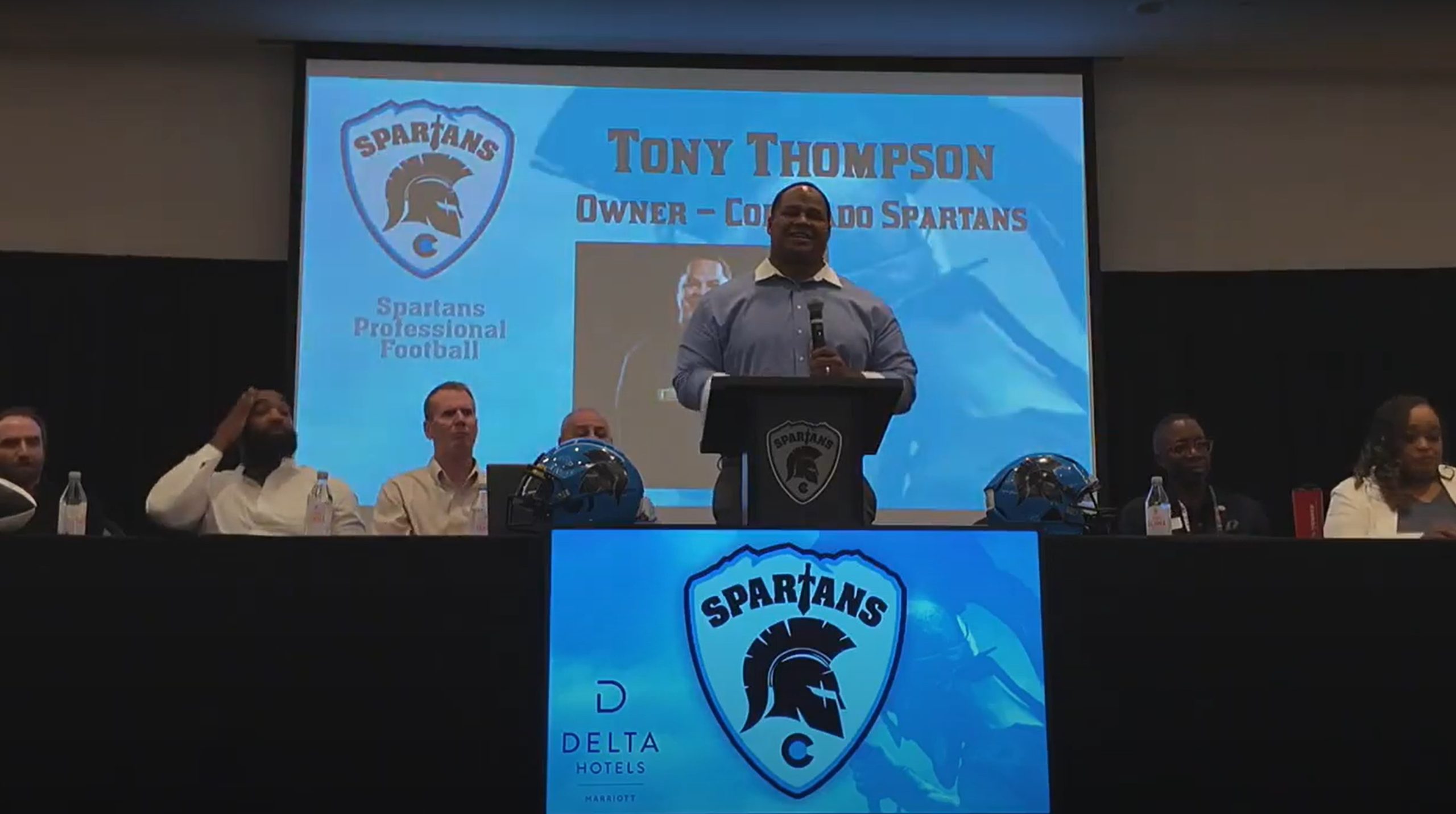Fique off-line com o app Player FM !
Tuesday, October 15, 2024
Manage episode 445304618 series 3353580

Today’s National Native News is anchored and written by Brian Bull. Antonia Gonzales is on assignment.
Native American organizations and communities celebrated Indigenous Peoples Day Monday.
This included an event held on the University of Oregon (UO) campus.
Members of the Native American Student Union spoke on a number of important issues, including the Missing and Murdered Indigenous People crisis, the Land Back Movement, and the dark legacy of “explorer” Christopher Columbus.
The Italian-American community had promoted Columbus as the discoverer of America following acts of violence against them in the early 20th century.
Anti-immigrant sentiment – including a mass lynching in Louisiana – prompted many to highlight Columbus as a positive figure.
But over the past few decades, Native American critics pointed to Columbus’s cruel treatment and exploitation of Indigenous people as a good reason not to celebrate his role in history.
Among those at the UO event was Tiera Garrety, a member of the Confederated Tribes of the Chehalis Reservation.
“I think Columbus Day really presents a settler colonial narrative, that is intent on destroying Indigenous identities. And instead assimilating us to Western culture, especially on college campuses. Inherently Western institutions that aren’t conducive to traditional Indigenous ways of knowledge.”



Garrety says it’s important for Native students to find a sense of community, especially those who are far from home.
“The joy that I find from community is my ‘found cousins.’ I think that everybody that is a part of NASU, everybody that is related to the Longhouse, is like a cousin, they’re like family.”
Garrety was dressed for the event. She described her hand-crafted garments.
“I actually made this ribbon skirt myself for the Mother’s Day powwow, I think last year. Trying to calm down and make ribbon skirts, so the UO Native person’s Christmas! So….(LAUGHS) And this basket, I actually got from one of my aunts, we’re really like an arts-centric family. Today for Indigenous People’s Day, it’s more than appropriate to be not only representing my tribe, but also my family here.”
Jason Younker also attended. He’s the Coquille Tribe’s Chief and UO presidential advisor on sovereign government to government relations.
He says this is the 10th year there’s been a ceremony to replace the tribal flags on campus.
“It’s a statement of the tribes and their confidence in the university, but also a reminder that this is Kalapuya Land, and Indigenous peoples were here before the university.”
Younker says besides the Longhouse, Native American students are also shown the nine tribal flags in the UO Amphitheater, to promote a sense of community and belonging.
Disclaimer: Brian Bull is a UO faculty member

(Courtesy Colorado Spartans)
The professional indoor football team Colorado Spartans have announced plans to play in Denver for the 2025 season.
The team’s owner, Tony Thompson, is half-Yankton Sioux and half Black, and wants to leave a lasting legacy on and off the gridiron.
Colorado Public Radio’s Tony Gorman has more.
Thompson’s decision to relocate the team from Loveland, Colo. to the Denver Coliseum wasn’t motivated by money, but by community outreach.
The former South Dakota State football player and business owner wanted to offer affordable advertising opportunities to small business owners.
Legacy also drives Thompson, who grew up on a reservation in South Dakota.
He flies the Yankton Sioux Tribal flag at games to honor his family back home.
“My grandma, my ancestors, all that, that’s, that’s home for me. So I give love back to them because not a lot of people make it out of the res, and so I don’t know. I not say I’m inspiration, but I hope that they could see that, hey, we could do something.”
Thompson is offering affordable family ticket packages for the upcoming season.
He says the team also plans to be involved with youth sports once it moves to Denver.
Get National Native News delivered to your inbox daily and stay up-to-date on the 2024 Native Vote. Sign up for our daily newsletter today.
334 episódios
Manage episode 445304618 series 3353580

Today’s National Native News is anchored and written by Brian Bull. Antonia Gonzales is on assignment.
Native American organizations and communities celebrated Indigenous Peoples Day Monday.
This included an event held on the University of Oregon (UO) campus.
Members of the Native American Student Union spoke on a number of important issues, including the Missing and Murdered Indigenous People crisis, the Land Back Movement, and the dark legacy of “explorer” Christopher Columbus.
The Italian-American community had promoted Columbus as the discoverer of America following acts of violence against them in the early 20th century.
Anti-immigrant sentiment – including a mass lynching in Louisiana – prompted many to highlight Columbus as a positive figure.
But over the past few decades, Native American critics pointed to Columbus’s cruel treatment and exploitation of Indigenous people as a good reason not to celebrate his role in history.
Among those at the UO event was Tiera Garrety, a member of the Confederated Tribes of the Chehalis Reservation.
“I think Columbus Day really presents a settler colonial narrative, that is intent on destroying Indigenous identities. And instead assimilating us to Western culture, especially on college campuses. Inherently Western institutions that aren’t conducive to traditional Indigenous ways of knowledge.”



Garrety says it’s important for Native students to find a sense of community, especially those who are far from home.
“The joy that I find from community is my ‘found cousins.’ I think that everybody that is a part of NASU, everybody that is related to the Longhouse, is like a cousin, they’re like family.”
Garrety was dressed for the event. She described her hand-crafted garments.
“I actually made this ribbon skirt myself for the Mother’s Day powwow, I think last year. Trying to calm down and make ribbon skirts, so the UO Native person’s Christmas! So….(LAUGHS) And this basket, I actually got from one of my aunts, we’re really like an arts-centric family. Today for Indigenous People’s Day, it’s more than appropriate to be not only representing my tribe, but also my family here.”
Jason Younker also attended. He’s the Coquille Tribe’s Chief and UO presidential advisor on sovereign government to government relations.
He says this is the 10th year there’s been a ceremony to replace the tribal flags on campus.
“It’s a statement of the tribes and their confidence in the university, but also a reminder that this is Kalapuya Land, and Indigenous peoples were here before the university.”
Younker says besides the Longhouse, Native American students are also shown the nine tribal flags in the UO Amphitheater, to promote a sense of community and belonging.
Disclaimer: Brian Bull is a UO faculty member

(Courtesy Colorado Spartans)
The professional indoor football team Colorado Spartans have announced plans to play in Denver for the 2025 season.
The team’s owner, Tony Thompson, is half-Yankton Sioux and half Black, and wants to leave a lasting legacy on and off the gridiron.
Colorado Public Radio’s Tony Gorman has more.
Thompson’s decision to relocate the team from Loveland, Colo. to the Denver Coliseum wasn’t motivated by money, but by community outreach.
The former South Dakota State football player and business owner wanted to offer affordable advertising opportunities to small business owners.
Legacy also drives Thompson, who grew up on a reservation in South Dakota.
He flies the Yankton Sioux Tribal flag at games to honor his family back home.
“My grandma, my ancestors, all that, that’s, that’s home for me. So I give love back to them because not a lot of people make it out of the res, and so I don’t know. I not say I’m inspiration, but I hope that they could see that, hey, we could do something.”
Thompson is offering affordable family ticket packages for the upcoming season.
He says the team also plans to be involved with youth sports once it moves to Denver.
Get National Native News delivered to your inbox daily and stay up-to-date on the 2024 Native Vote. Sign up for our daily newsletter today.
334 episódios
Todos os episódios
×Bem vindo ao Player FM!
O Player FM procura na web por podcasts de alta qualidade para você curtir agora mesmo. É o melhor app de podcast e funciona no Android, iPhone e web. Inscreva-se para sincronizar as assinaturas entre os dispositivos.




